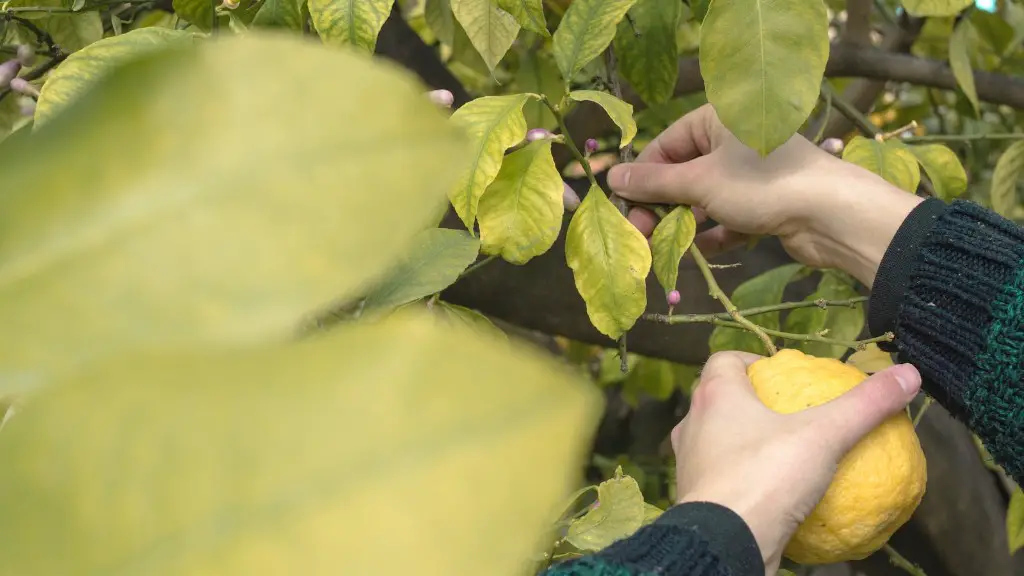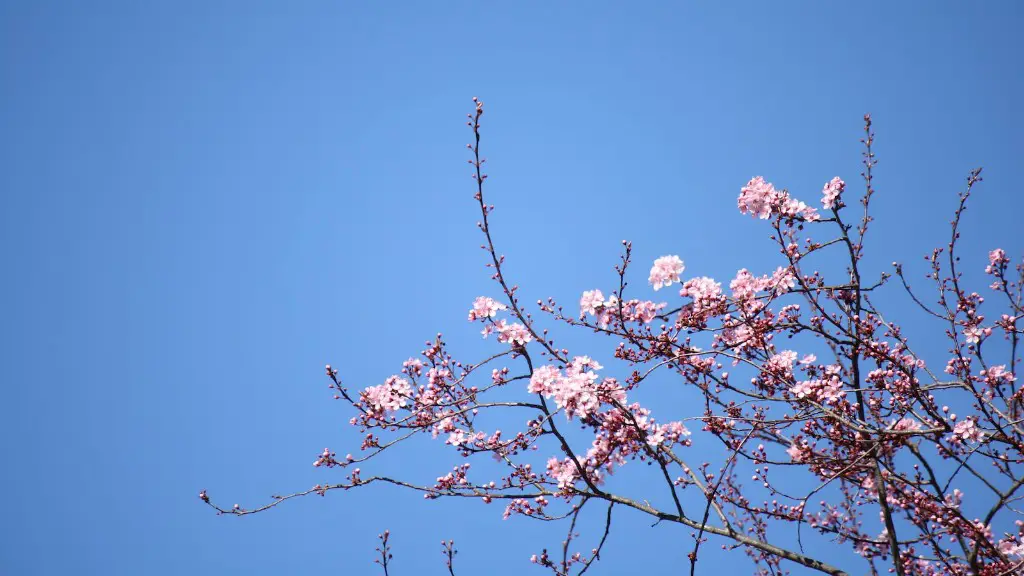Root Causes
Avocado trees are usually very hardy and can produce fruit several times a year, depending on the variety. Occasionally, there can be a reason why an avocado tree might not be producing fruit. It’s important to understand what are the root causes that could be preventing your avocado tree from producing fruit, as this can help you determine the best course of action.
One of the most common reasons why an avocado tree will not produce fruit is due to nutrient deficiency. Avocados need specific nutrients like nitrogen, phosphorus, potassium, calcium and magnesium for optimal growth and fruiting. If your soil lacks these essential nutrients, or is deficient in certain nutrients, then it can prevent the tree from producing fruit. If a tree is not getting enough of the right nutrients, then it might not be able to produce flowers or fruit.
Another reason why an avocado tree might not be producing fruit is if the tree is in an area where there is too much shade. Avocado trees need a lot of sunlight in order to grow and fruit properly. Without enough of this, the tree won’t receive the energy it needs to produce fruit and can become stunted or even die.
Finally, it could be that your tree is not getting enough pollination. Pollination is important for fruit production as it helps to spread the pollen from one avocado flower to another. If your tree does not have bees or other pollinators visiting it regularly, then it will not have the chance to successfully pollinate and produce fruit.
Techniques to Promote Fruit Production
Once you have identified the root causes that might be preventing your avocado tree from producing fruit, there are several techniques you can use to promote fruit production.
Fertilization is one of the most important steps you can take to ensure your avocado tree has the right nutrients to produce fruit. It’s important to use a fertilizer that is specifically designed for avocado trees and to fertilize your tree on a regular schedule. If possible, it’s also a good idea to conduct a soil test to determine the specific nutrients that are needed for your tree.
To ensure your avocado tree is getting enough light, you should ensure it is planted in a sunny area. If it’s not, then you might need to prune the tree or remove some of the surrounding trees to allow for more sun exposure.
Finally, if your tree is not getting enough pollination, then you can aid the process by hand-pollinating the tree yourself. This involves using a soft brush to transfer pollen from one avocado flower to another. It’s a time-consuming process, so you may want to consider using a bee-attracting spray, which will help attract bees and other pollinators to your tree.
Diseases and Pests
Another factor that can prevent an avocado tree from producing fruit is diseases and pests. If the tree has been affected by a disease or pest infestation, then this can prevent the tree from thriving, which in turn affects its ability to produce fruit. To reduce the risk of disease and pests, it’s important to inspect the tree regularly and take steps to prevent infestation.
Tree diseases that can specifically affect avocado trees include olive knot, citrus flat mite and verticillium wilt. To reduce the risk of disease, it’s important to prune the tree regularly and keep the area around the tree free of weeds.
Pests that commonly attack avocado trees include scale insects and mealybugs. To prevent infestation, it’s important to inspect the tree regularly and remove any insect infestations as soon as possible. You can also use an insecticidal soap or oil spray to control pest populations.
It’s also a good idea to practice beneficial cultural practices such as avoiding monoculture and crop rotation, as this will help to discourage pests and diseases.
Watering and Pruning
One of the most important steps to take to ensure your avocado tree produces fruit is to ensure proper watering and pruning. If a tree is over-watered or under-watered, this can lead to fruit production issues and affect the tree’s overall health.
When it comes to watering an avocado tree, it’s important to water deeply and thoroughly, and to avoid over-watering. The soil should be kept evenly moist but not soggy. You can also use a soil moisture meter to get an accurate reading of the soil’s moisture level.
Pruning is also important for proper fruit production. Avocado trees should be pruned regularly to remove dead, diseased or damaged branches and to improve air circulation. Pruning also helps to encourage new growth, which is necessary for the tree to produce blooms and fruit.
Weed Control and Mulching
In addition to watering and pruning, it’s also important to practice proper weed control and mulching. Weeds can compete with the tree for nutrients, water and sunlight, which can lead to lagging growth, weak blooms and decreased fruiting.
To control weeds, use an appropriate herbicide or a natural weed killer such as white vinegar. Additionally, mulching is important for weed control and also helps to retain soil moisture and prevent weeds from germinating.
Soil pH and Climate
It’s also important to consider other factors like soil pH and climate when it comes to fruit production. Avocado trees prefer a soil pH between 6.0 and 6.5, and a temperature between 60 and 80°F. If your soil pH is too high or low, or the temperature is too hot or cold, this can affect the tree’s ability to thrive and produce fruit.
You can use a soil test kit to determine the correct soil pH. If needed, you can use products like phosphorus and manure to adjust the pH level. Additionally, if your climate is too extreme, you may need to provide extra shelter or protection for the tree, such as a shade cloth or windbreak.
Pruning for Size and Yield
Finally, pruning is important for controlling the size and yield of your avocado tree. Pruning helps to encourage new growth and remove any unproductive branches, which can increase the tree’s yield.
When pruning, it’s important to make sure you remove dead or diseased branches and reduce the number of total branches on the tree. Additionally, it’s important to avoid pruning too much, as this can lead to long-term damage or death of the tree.
Pollinators and Frost Control
In addition to the other techniques mentioned, another way to promote fruit production is to ensure proper pollination and frost control. Pollinators, such as bees and butterflies, play an important role in the production of fruit, as they help to spread the pollen from one avocado flower to another.
If there aren’t enough pollinators to visit your tree, then you can help to encourage pollination by planting native plants in the area, as this will attract pollinators. Additionally, you can use a bee-attracting spray, which will help to draw pollinators to the tree.
Frost can also damage avocado trees, so it’s important to make sure your tree is protected from frost. If possible, you should avoid planting your tree in areas that are prone to frost, or you can use a frost cloth to create a layer of protection against the cold temperatures.
Good Horticultural Practices
The final step to ensuring your avocado tree produces fruit is to practice good horticultural practices. This includes regular soil testing, proper watering and pruning, adequate mulching, and the removal of weeds, pests, and diseased branches. Additionally, it’s important to observe the tree regularly and take preventative steps to minimize the risk of pest and disease infestations.
By investing the time and effort into proper horticultural practices, you can ensure your avocado tree is in optimal health and has the best chance of producing a bountiful yield of delicious avocados.

